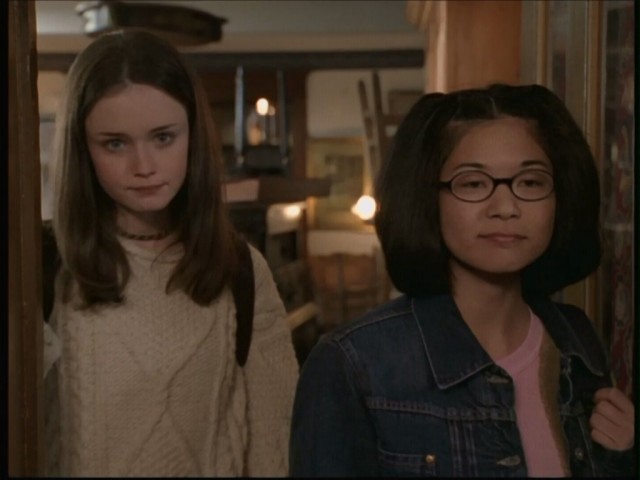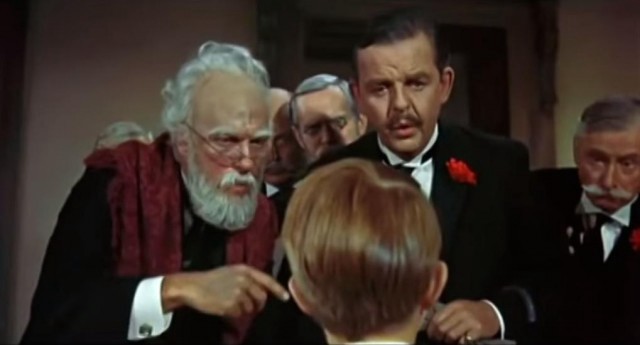This Week, in Millennials: What Ambition Means To Us

I’m proud of us, Millennials! And kind of impressed. According to a report in the Huffington Post, Millennials are increasingly thinking for themselves and coming to different conclusions than our parents and grandparents about what we want out of our careers — and our lives:
Sara, a talented Millennial, doesn’t aspire to a leadership opportunity that the typical Baby Boomer jumped all over two decades ago. But would she like to lead? Most definitely, she said, but only if there would be space for her family obligations.
Sara is singled out to speak on behalf of millions of us, which renders everything she says highly suspect; but never mind that right now. She wants flexibility and balance more than she wants to “have it all,” and since she happens to agree with me, I am okay with using her as an exemplar.
I do wonder, though: did any statistically significant number of people in previous generations ever articulate a desire to “have it all” in the first place, or has that been a straw man for decades now?
Whatever. Sara wants a more diverse, tolerant, collaborative workplace, and a career in which she can accomplish something meaningful, and companies are paying attention.
if your company’s executive suite is still a fraternity of white guys, that probably won’t be very appealing to the Millennial generation. … the image of the hero-leader has to go. It’s an outdated mode of leadership that Millennials, who thrive on collaboration, simply can’t relate to.
when surveyed, 48 percent of hiring managers cited “high pay” as the #1 most important factor that they believed Millennials use to define “career success,” while only 11 percent of surveyed Millennial placed it as the most important factor. What got the top vote as “most important” factor from the Millennials? “Meaningful work” was listed more often than six other factors, including high pay.
Maybe this is why we aren’t as entrepreneurial as previous generations?
‘ … millennials aren’t starting companies the way previous generations did — all the research confirms this,’ she said, pointing to research by the Kansas City-based Kauffman Foundation and the Brookings Institute, among others. And research that just came out this week from Kauffman only helps confirm this: for example, new entrepreneurs ages 20 to 34 fell to 24.7% last year, compared to the 34.3% of people who were in the same age demographic in 1996 when they started businesses.
The easier answer to why we’re not as entrepreneurial (yet) is that we don’t have the capital. We’re burdened by debt and came of age in a recession.
Beyond that, though, as anyone who’s listened to the Start Up podcast knows, building a business from scratch is not an easy thing to do while maintaining any kind of balance in your life. BTW, if you’re not yet listening to Start Up Season 2, you should; it’s a fascinating behind-the-scenes look at the frustrations and successes of young women trying to gain a foothold in Silicon Valley.
Here’s another potential problem: on the whole, Millennials intensely distrust banks. Maybe we were swayed by — or even participated in — Occupy protests, or maybe we simply saw Mary Poppins too many times as kids.

That old dude was like walking, grasping death. Terrifying. Who wouldn’t want to save their tuppence to feed the birds? Or perhaps we have been scarred by the dastardly, scheming Mr. Potter from It’s A Wonderful Life.

When conservative politicians grumble about how liberal Hollywood these days is indoctrinating our children by popularizing villains like Lord Business, they seem to forget that disparaging rich old dudes in kids fare is a venerable pop cultural tradition. Hell, what is Count Dracula if not a rich old dude in a castle who preys on the ordinary man?
Regardless, as Tech Crunch points out, Millennials are bank-averse and that means banks are in trouble.
Few industries will face a greater struggle targeting these new consumers than banks, who seem wholly unprepared with what to do with us. Indeed, if ever there was a dark evil in the world that millennials as a whole would probably like to see completely destroyed like San Francisco in San Andreas, it is the banking industry.
Not all Millennials have turned their backs on banks and capitalism in general. Some of us are doing quite nicely indeed — high-earning women, especially.
30% of these wealthy Millennial women were the primary income earners, and another 21% contributed the same amount as their partners. That’s compared to just 11% of Gen X women who made more than their husbands, 15% of Baby Boomer women and 4% who are 70 years old or older. The percentage of equal earners remained relatively similar across all four generations.
Not only are the high net worth Millennial women earning more than women in other generations, but they’re also making more financial decisions than older women. In fact, in a major generational shift, they’re making more financial decisions than their husbands.
For Millennial women, 31% are the dominant decision-makers when it comes to household finances, compared to 28% of men, just 11% of Gen X women, 9% of Boomer ladies and 1% of what the report calls “mature” females. The breakdowns, and the vast shift from generation to generation, are nearly identical when it comes to investment decisions.
Younger wealthy women are also seeing a great change when it comes to childcare. The report found that while women across the board still act as the primary caregivers for children, Millennial men are taking on a far greater share of the responsibility than men of older generations.
25% of Millennial dads identify as primary caregivers! That’s a huge jump from previous generations, all of whom were in the single digits. And more women are managing their money than ever before, or at least joining their spouses in making financial decisions.
Overall, I’d say the State of the Millennial Union is reasonably strong. Even a newly meek David Brooks seems to be giving us his blessing.
Support The Billfold
The Billfold continues to exist thanks to support from our readers. Help us continue to do our work by making a monthly pledge on Patreon or a one-time-only contribution through PayPal.
Comments